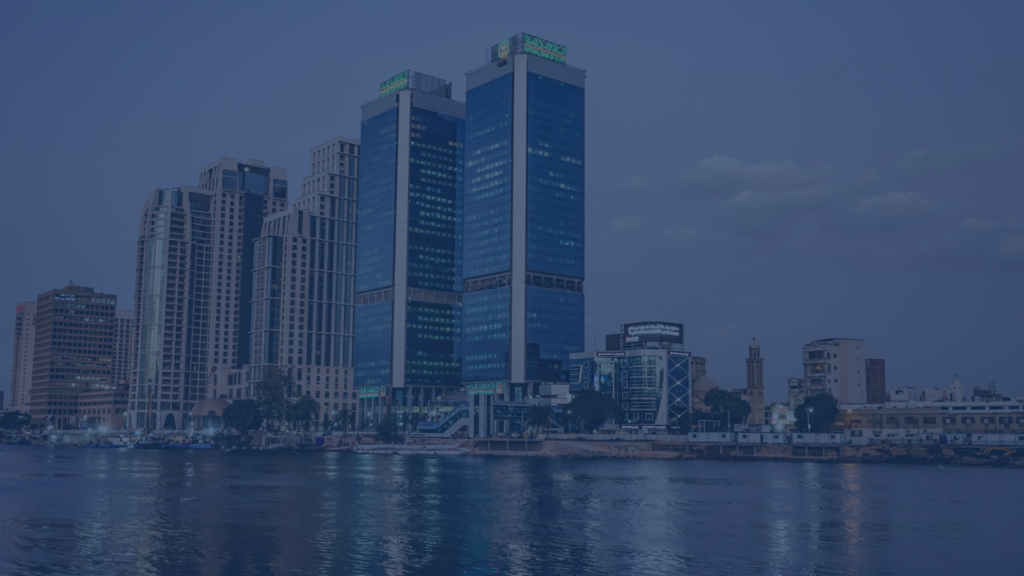
Egypt’s economy is one of the most diversified in the Middle East and North Africa. The country’s strategic location, rich natural resources, and large population have made it a regional hub for trade and investment.
Egypt’s economy has been growing at around 3-5% per year since 2017 and is expected to grow by around 5.5% by the end of 2022. This growth has been driven by several factors, including strong foreign direct investment inflows, positive economic reforms, and robust domestic consumption.
Exploring Egypt’s Economic Opportunities
Egypt offers numerous advantages for businesses looking to invest in the country. For starters, Egypt’s population of over 100 million provides a large potential market for businesses. Additionally, the country’s geographic location also provides an excellent potential to develop the region as a hub for trade and investment.
Young Population
Egypt has a young and rapidly growing population. Over 60% of the population is under the age of 30, making it an attractive market for consumer-oriented businesses.
Strategic Location
Egypt is located at the crossroads of Africa, the Middle East, and Europe. This makes it an excellent location for businesses looking to tap into regional markets across all three continents.
Rich Natural Resources
Egypt is home to several valuable natural resources, including oil, gas, and minerals. These resources provide a great source of revenue for the government and offer opportunities for businesses in the mining and energy sectors.
Egypt’s Most Well-Developed Sectors
Egypt has many thriving industries, which offer opportunities for businesses looking to invest in the country and local businesses looking to expand their operations.
Agriculture
Egypt is a major producer of agricultural commodities, such as wheat, rice, and cotton. The country’s large agricultural sector provides the largest portion of employment in the nation, representing 21% of the entire workforce.
Manufacturing
Egypt has a large manufacturing sector, which accounts for around 15% of its total GDP. The manufacturing sector is dominated by the textile and food processing industries.
Tourism
Egypt is a major tourist destination, with around 13 million tourists visiting the country in the year prior to the pandemic. Tourism accounts for around 12% of the nation’s total GDP and employs around 2.2 million people.
Oil and Gas
Egypt is a major producer of oil and gas. The country’s oil reserves are estimated at around 4.4 billion barrels, while its gas reserves are estimated at around 77 million cubic feet.
Egypt’s Trade Relationship with Saudi Arabia
Egypt is a major trading partner of Saudi Arabia and has been so for a few decades. In 1989, the two countries signed a trade agreement, which was followed by several other agreements in the 1990s. The two countries continue to have strong economic ties to this day and are both members of the Arab League and the Organization of Islamic Cooperation.
Inbound Trade
Egypt imports a significant amount of Saudi Arabian products, with the number one being crude petroleum. This exchange was worth USD$1.63 billion in 2020. Saudi exports to Egypt continue to grow each year and have increased by 10.1% in total over the past two and a half decades.
Outbound Trade
Egypt also exports a significant number of products to Saudi Arabia. Refined petroleum is the number one export, representing USD$3.88 million in 2020. In total, Egypt exported USD$2.8 billion worth of products to Saudi Arabia in the same year.
Investment
Saudi Arabia is a major investor in Egypt. This year, Saudi Arabia and Egypt signed 14 agreements representing USD$7.7 billion worth of investment. The majority of these deals were signed in relation to renewable energy, fintech, and petroleum-related industries. Saudi Arabia remains Egypt’s largest source of foreign investment and continues to contribute a hefty US$10 billion to the Egyptian economy each year.
Egypt – An Economy on the Rise
The Egyptian economy is growing rapidly, driven by reforms and strong domestic demand. The country has a diversified economy with a strong focus on sectors such as agriculture, manufacturing, tourism, and oil and gas.
There are also some rapidly emerging industries, which have enjoyed recent foreign investment, such as the renewable energy sector and the fintech industry. The Egyptian government has made it easier to start and operate businesses and has worked to attract foreign investment. These reforms have helped to improve the business environment and spur economic growth.









